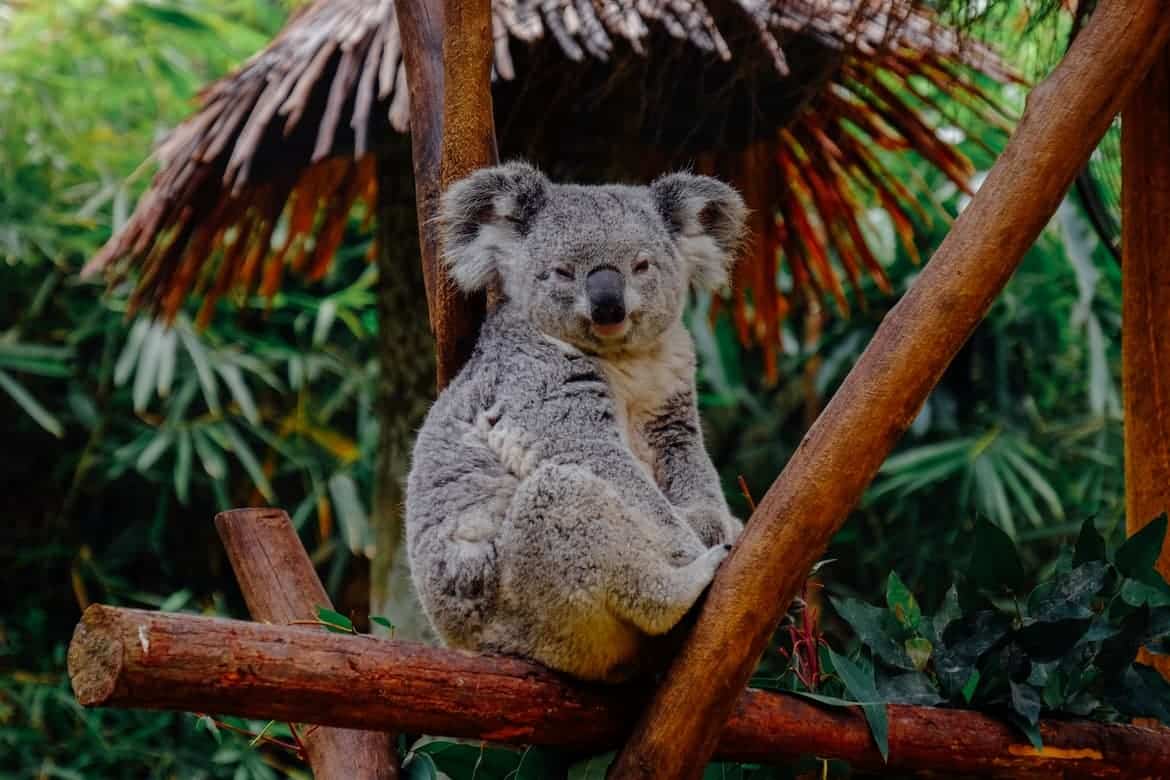Koalas are nocturnal, meaning they sleep for the majority of the day. They are usually quiet and shy creatures. You’ll be able to see these magnificent creatures in action during the night. Their primary source of food is eucalyptus leaves, which provide little nutritional value to the Koala. They consume these leaves during the day, recharging their batteries for the night ahead.
Male and female koalas can both make bellowing cries, although males are more likely to do so to attract a partner. Snarls, squeaks, and screams are among the various sounds they produce.
According to some of the new research, male koalas advertise their size by modifying the resonance of their calls. Lower resonances (also known as formants) have a more baritone sound and are associated with larger males, a desirable feature in a koala.

Life Cycle of the Koala
Koalas have a mating season that lasts from August to February. For Koalas, this is a time of greater activity, with sound levels rising as males bellow more frequently. The young from the previous year also leave their moms and disperse at this time. As suburban Koalas are on the move, crossing paths with automobiles and dogs, and experiencing greater rates of stress-induced illness, this is the busiest time for Koala caretakers.
Females often begin reproducing at three or four years old, producing one child every year. Depending on the age and habitat quality, not all females in a natural population will breed every year; some will only have offspring every two or three years. For a typical female’s 12-year lifespan, she may have five or six children.
The Joey
It takes only 35 days from conception to the birth of a newborn Koala, known as a “joey.” The joey navigates from the birth canal to the pouch on its own, depending on its developed senses of smell and touch, powerful forelimbs and claws, and intuitive sense of direction. The joey hooks itself to one of the two teats, which grows to fill its mouth once inside the pouch’s safety. The joey will not be separated from its feeding source as a result of this. The mother contracts her powerful sphincter muscle at the pouch opening to keep the baby from tumbling out.
Feeding Young Koala
For the first six to seven months, the baby Koala only drinks its mother’s milk and remains in the pouch, slowly growing and developing eyes, ears, and fur. Its eyes open about 22 weeks, and it starts to peep out of the pouch. It begins to feed on a material called “pap,” which the mother makes in addition to milk between 22 and 30 weeks.
Pap is a type of feces or droppings. It is a key part of an infant Koala’s diet, assisting it with the transition from milk to eucalyptus leaves. It is the same way as a human baby is given “mushy” food when they first start eating solids.
Life Span of Koalas
Female Koalas live longer than men because males are more likely to be hurt during fights and live in an inferior habitat. Males also travel larger distances than females. Koalas who live in natural surroundings live longer than those in suburbia; therefore, putting a life expectancy on the average Koala can be misleading.
The normal life span of an adult wild male Koala is estimated to be ten years. A dispersing sub-adult male living near a roadway or a housing complex has a survival rate of two to three years.
Hear below the mating call at Taronga: